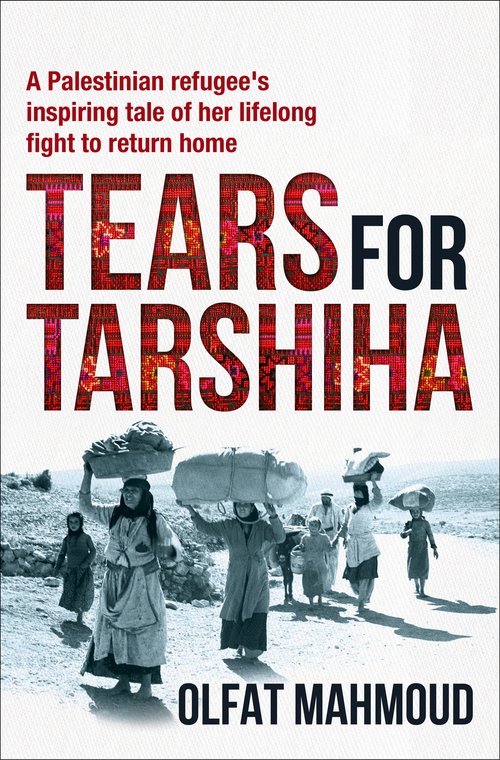Dr Olfat Mahmoud was a nurse, a survivor of the massacres of the Palestinian refugees in Sabra and Shatila refugee camps in Beirut in 1982. She was born, lived, and worked in the Burj el Barajneh camp in southern Beirut. She went on to become a leading, and much-loved, advocate for the rights of Palestinians, women, refugees, children, and people with disabilities.
Olfat became very ill on 18 March, and after a major operation, was incapacitated until her death at home on 24 September 2023. She is survived by her sons Hani, Hadi, Fayez and Chaker, two grandchildren, her husband Mahmoud and her sisters and brothers.
Olfat’s family fled the village of Tarshiha in 1948, during the war that established the State of Israel. Olfat and her parents were never able to see the village again. Hence the title of her memoir, “Tears for Tarshiha” (2018).
With no citizenship, Palestinian refugees are excluded from permanent work, and around 80 job categories; they are unable to benefit from Lebanese schools and services; they cannot own property in Lebanon, or be legally connected to phones, electricity or water. Basic health and education services are provided by the UN Relief and Works Agency (UNRWA).
Olfat was a very articulate advocate, but her role was not only communications. She worked tirelessly to develop practical solutions for the refugee communities. In 1993 she established the Palestinian Women’s Humanitarian Organisation (PWHO), bringing together refugee women to define their needs and solutions. PWHO has projects on health, child protection, violence, women’s peer support, women’s rights education, nutrition, safety, elderly care, people with disabilities, healthy recreation, psychosocial support and youth leadership.
Because women wanted to work, they collectivised childcare and early childhood education, so that children start primary school with basic Arabic, English and maths. Primary school students experiencing difficulties can attend afternoon “school retention” classes. After 2011, the projects and the communities in the overcrowded camps adapted to the influx of Syrian and Syrian-Palestinian refugees.
The PWHO now has around 190 staff in refugee camps in Beirut and in the south of Lebanon, with support from Union Aid Abroad – APHEDA, the Australian Education Union, the Australian government, Women to Women (Sweden), Save the Children (Norway), Middle East Children’s Alliance, Taawon (the Welfare Association), Terre des Hommes (Lausanne), Medical Aid for Palestine, and other organisations.
Olfat gained a doctorate in psychology in 2016 and became a teacher in psychology and women’s studies at the Beirut Arab University.
 Dr Helen McCue met Olfat in the camps in 1982, when Helen went to volunteer as a nurse alongside Palestinian, local and international health workers responding to the Sabra-Chatila massacre. Helen’s experiences in practical solidarity in the camps with Olfat led to Helen approaching Cliff Dolan, president of the Australian Council of Trade Unions to establish an international aid agency, based on the trade union movement. The first project, supported by the Australian government, brought a group of nurses, including Olfat, to Australia for training in community health.
Dr Helen McCue met Olfat in the camps in 1982, when Helen went to volunteer as a nurse alongside Palestinian, local and international health workers responding to the Sabra-Chatila massacre. Helen’s experiences in practical solidarity in the camps with Olfat led to Helen approaching Cliff Dolan, president of the Australian Council of Trade Unions to establish an international aid agency, based on the trade union movement. The first project, supported by the Australian government, brought a group of nurses, including Olfat, to Australia for training in community health.
Olfat visited many countries as a Palestinian woman refugee advocate, and she was able to do speaking tours in Australia many times, and has many friends here.
Through her tireless work, Olfat changed the lives of thousands of refugee women and children. Through her voice, the Right of Return of the refugees has stayed on the international justice agenda.
*****
You can donate to our project with the Palestinian Women’s Humanitarian Organization here, write “Lebanon” in the comments section.
